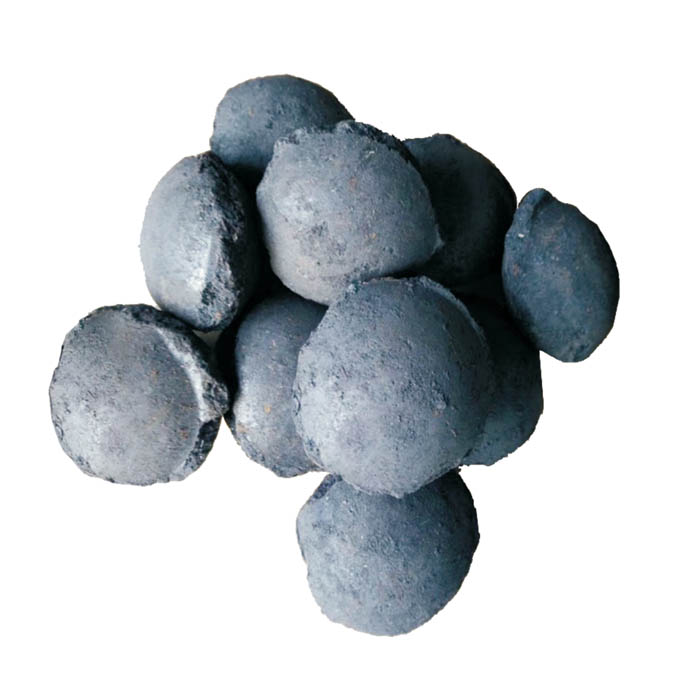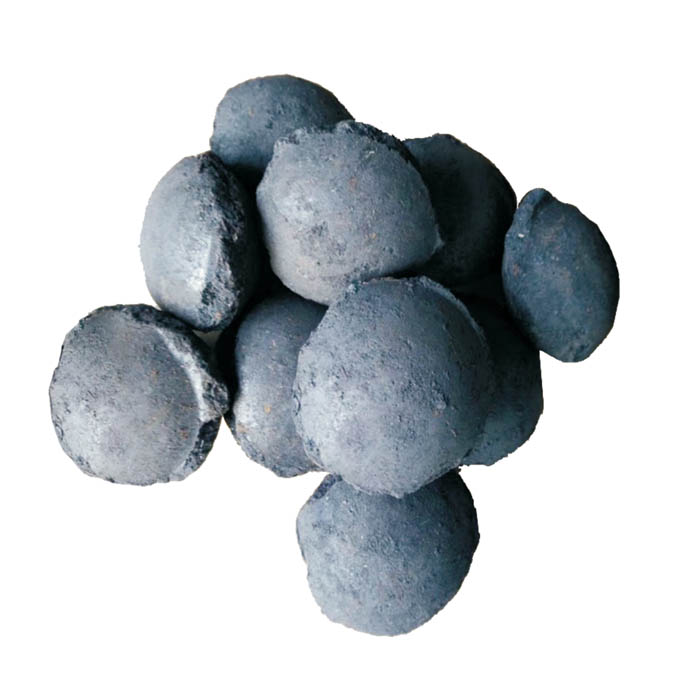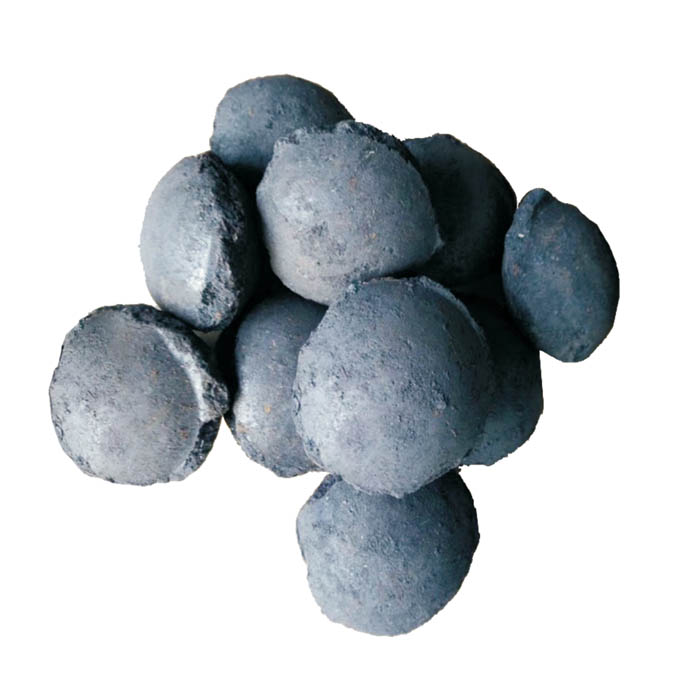Aug . 05, 2025 04:00 Back to list
Fe-C Composite Pellets for BOF: High-Efficiency & Cost-Saving
As the global steel industry seeks innovative solutions for environmental compliance, productivity, and cost-efficiency, Fe-C Composite Pellets for BOF are rapidly gaining traction. This in-depth analysis covers recent industry trends, technical specifications, manufacturing expertise, vendor comparisons, custom solutions, and proven application cases, all tailored to meet BOF (Basic Oxygen Furnace) operational excellence.
Industry Trends in Fe-C Composite Pellets for BOF
- Market Growth: Global BOF-based steelmaking is projected to exceed 1.41 billion tons in 2024, with enhanced raw material efficiency as a strategic priority. Composite pellets are expected to achieve a 13% YoY adoption rate (source: Worldsteel, 2023).
- Environmental Compliance: Composite pellets with optimized Fe-C content show a 25-35% reduction in NOx and particulate emissions due to improved combustion and faster reduction kinetics.
- Digitization & Smart Manufacturing: Advanced tracking and quality monitoring (ISO 9001:2015/ISO 14001:2015) now enable batch certification and full traceability for Fe-C composite pellets.

Definition and Role in Modern Steelmaking
Fe-C Composite Pellets for BOF are engineered agglomerates consisting of iron oxide concentrate, carbonaceous reductants (such as coke breeze or anthracite), and special binders. Used as charge materials for Basic Oxygen Furnaces, they provide a controlled Fe-C ratio to optimize oxygen usage and achieve targeted hot metal chemistry.
Direct Reduction Index (DRI), Apparent Density, Cold Crushing Strength (CCS), RDI (Reduction Degradation Index), Sinterability, ISO/ANSI Testing
Technical Parameters: Fe-C Composite Pellets for BOF
| Property | Specification | Test Standard | Typical Value |
|---|---|---|---|
| Fe Content (%) | ≥ 70.0 | ISO 2597:2015 | 71.3 |
| C Content (%) | 5.5 ~ 6.5 | ISO 9556:2020 | 6.0 |
| Cold Crushing Strength (CCS) | ≥ 2500 N/pellet | ISO 4700:2015 | 2650 N/pellet |
| Apparent Porosity (%) | 16–18 | ANSI 71 | 17.2 |
| Bulk Density (t/m³) | 2.23–2.35 | ISO 11256:2015 | 2.31 |
| Pellet Diameter (mm) | 8–16 | Company Spec | 10.8 |
| Reduction Degradation Index (RDI) | ≤ 28% | ISO 4696-1:2015 | 25.4% |
Technical Data Comparison & Visualization
Manufacturing Process of Fe-C Composite Pellets for BOF
- Raw Material Preparation: Blending of high-purity iron ore fines (≥71% Fe), coke breeze (≤7% ash), and eco-binder.
- Mixing & Pre-granulation: Homogeneous mixing in high-shear granulators to ensure perfect Fe-C ratio.
- Pelletizing: Disc or drum pelletizer transforms the mixture into green balls (ISO 4701:2022 compliance).
- Drying: Controlled drying curve prevents microcracks, maximizes pellet strength pre-sintering.
- Thermal Hardening: Induration at 1250–1350°C yields a dense, metallurgically active structure.
- QA/QC Testing: Each batch analyzed for Fe/C content, crushing strength, porosity (ISO / ANSI / ROHS standards).
- Packing & Logistics: Bulk packaging in 1.5 ton bags, barcode traceability; end-to-end digital supply chain controls.

Material Focus: Strict selection of iron ore/concentrates (ISO 622:2012), coke breeze with consistent residue analysis, and non-toxic organic binders (FDA/EC1935 certified) ensure safety, sustainability, and product uniformity in Fe-C Composite Pellets for BOF.
Vendor Comparison: Market Leaders in Fe-C Composite Pellets
| Vendor / Brand | ISO Certified | Typical Fe/C Ratio | Custom Size Available | After-Sales Support |
|---|---|---|---|---|
| Xingtai Luxi New Material | ISO 9001, ISO 14001 | 11.9 :1 | Yes (6–22 mm) | 24/7 Tech, Field Engineer |
| Metinvest (Ukraine) | ISO 9001, EN 197-1 | 10.8 :1 | Limited (≈12mm) | Online Only |
| Kobe Steel (Japan) | ISO 14001, JIS | 12.2 :1 | Custom (10/16/20mm) | Regional Team |
Authoritative Reference: Xingtai Luxi’s Fe-C Composite Pellets for BOF are trusted by major metallurgical, petrochemical, and water treatment companies in Europe and Asia.
Annual shipments reached 120,000 tons in 2023, with zero non-conformance in customer audits (source: customer satisfaction surveys).
Customized Fe-C Composite Pellet Solutions
Recognizing the operational diversity of global customers, Fe-C Composite Pellets for BOF are available in fully customized specs:
- Diameter Range: 6.0–22.0mm (±0.3mm)
- C Content: Tuned between 4.5–8.0%, matching desired hot metal carbon input
- Binder Formula: Ore-specific binders for high-temperature BOF, or corrosion-resistant for water treatment
- Surface Coating: Optional anti-dust or corrosion-resistant layers for petrochemical/wastewater industries
- Packing: Jumbo bags, paper sacks, or container111ized bulk

Customized 12mm Fe-C pellets, anti-corrosive coating, supplied for process water decarbonization. Result: 37% longer filter life (third party tested, SGS Oman).
Application Scenarios: Where Fe-C Composite Pellets for BOF Deliver Value
- Steelmaking (BOF) Charging: Fast melting, optimized Fe/C ratio speeds up decarburization, and improves steel yield by 3-5% (source: Metal Bulletin, 2022)
- Petrochemical Deoxidation: Used in process water to reduce O2 and control corrosion of reactors and pipelines
- Municipal Water Treatment: Supports zero-discharge filtration systems by scavenging dissolved O2 and organic impurities.
- Cement Kiln Additive: Serves as a secondary reducer, ensuring even heat transfer and clinker formation.
Customer: Baosteel, PRC
Scenario: Replaced 30% of conventional sinter with Fe-C composite pellets in BOF
Results:
- Slag Foaming improved by 15%
- Yield increased by 3.9%
- NOx emissions down 27% (confirmed by CERI)
- Refractory life (below tuyere) increased by 20%
Fe-C Composite Pellets for BOF: FAQs & Applied Knowledge
1. What is the typical material composition?
- Iron content: 70–72% (hematite or magnetite powder)
- Carbon (as coke breeze or refined anthracite): 5–7%
- Binding agent: 2–4% (organic/eco-binders)
- Impurities (P, S): <0.032%
2. What is the recommended pellet diameter and tolerance for BOF use?
3. What mechanical tests are applied to ensure pellet integrity?
4. What standards must be met for export to EU/US markets?
5. How long is the typical service life and storage period?
6. Can the pelletizing technology be adapted for other reduction systems (EAF, DRI)?
7. Are installation/charging procedures different from other charge materials?
Delivery Lead Time, Warranty & Customer Support
Standard size: 7–14 working days
Custom specs: 17–20 working days (dependent on batch size & formula)
Warranty:
All Fe-C Composite Pellets for BOF include a 12-month defect-free warranty; product replacement or refund on non-conforming supply within the documented period.
- 24/7 technical hotline & online support
- On-site commissioning and training for large-volume users
- Batch traceability and certification available per shipment
- Proactive recall/notice on any spec deviation found during post-shipment audits
Conclusion & Authoritative References
The adoption of Fe-C Composite Pellets for BOF represents a significant leap in the optimization of metallurgical processes. With tailored technical parameters, ongoing innovation in binder chemistry, global certifications, and proven operational experience, these pellets are poised to become the market standard for next-generation steelmaking and industrial deoxidization. Their contribution to efficiency, emissions reduction, and process reliability is
This is the last article
-
Fe-C Composite Pellets for BOF: High-Efficiency & Cost-Saving
NewsAug.05,2025
-
Premium Tundish Covering Agents Exporters | High Purity
NewsAug.04,2025
-
Fe-C Composite Pellets for BOF | Efficient & Economical
NewsAug.03,2025
-
Top Tundish Covering Agent Exporters | Premium Quality Solutions
NewsAug.02,2025
-
First Bauxite Exporters | AI-Optimized Supply
NewsAug.01,2025
-
Low Nitrogen Graphitized Petroleum Coke Supplier
NewsJul.31,2025
